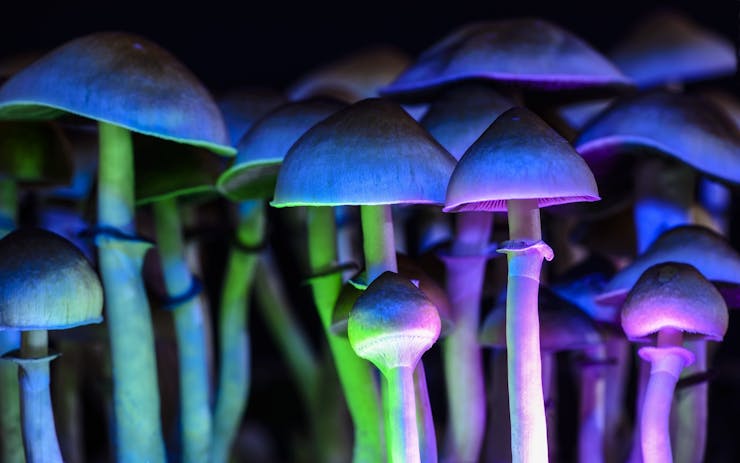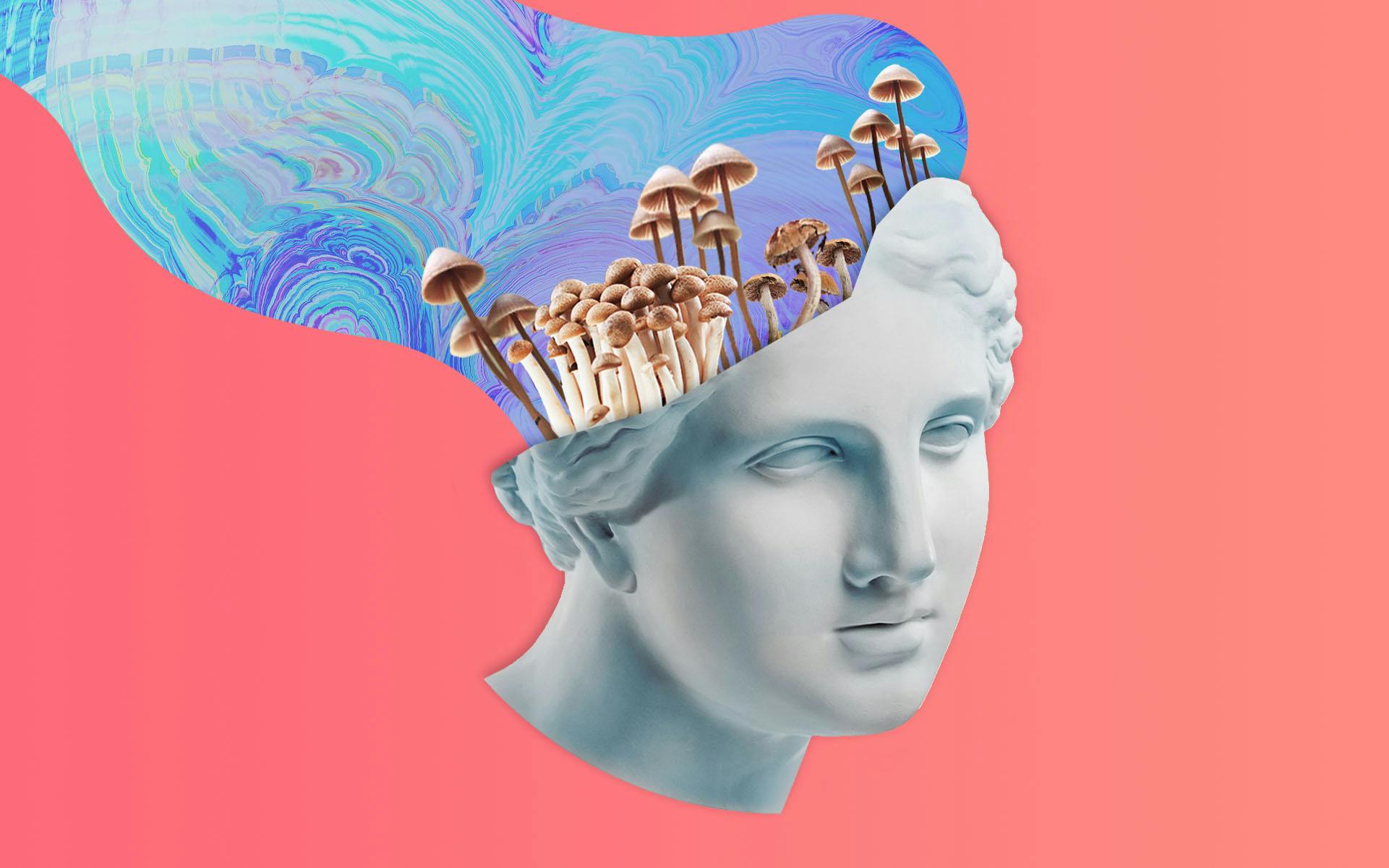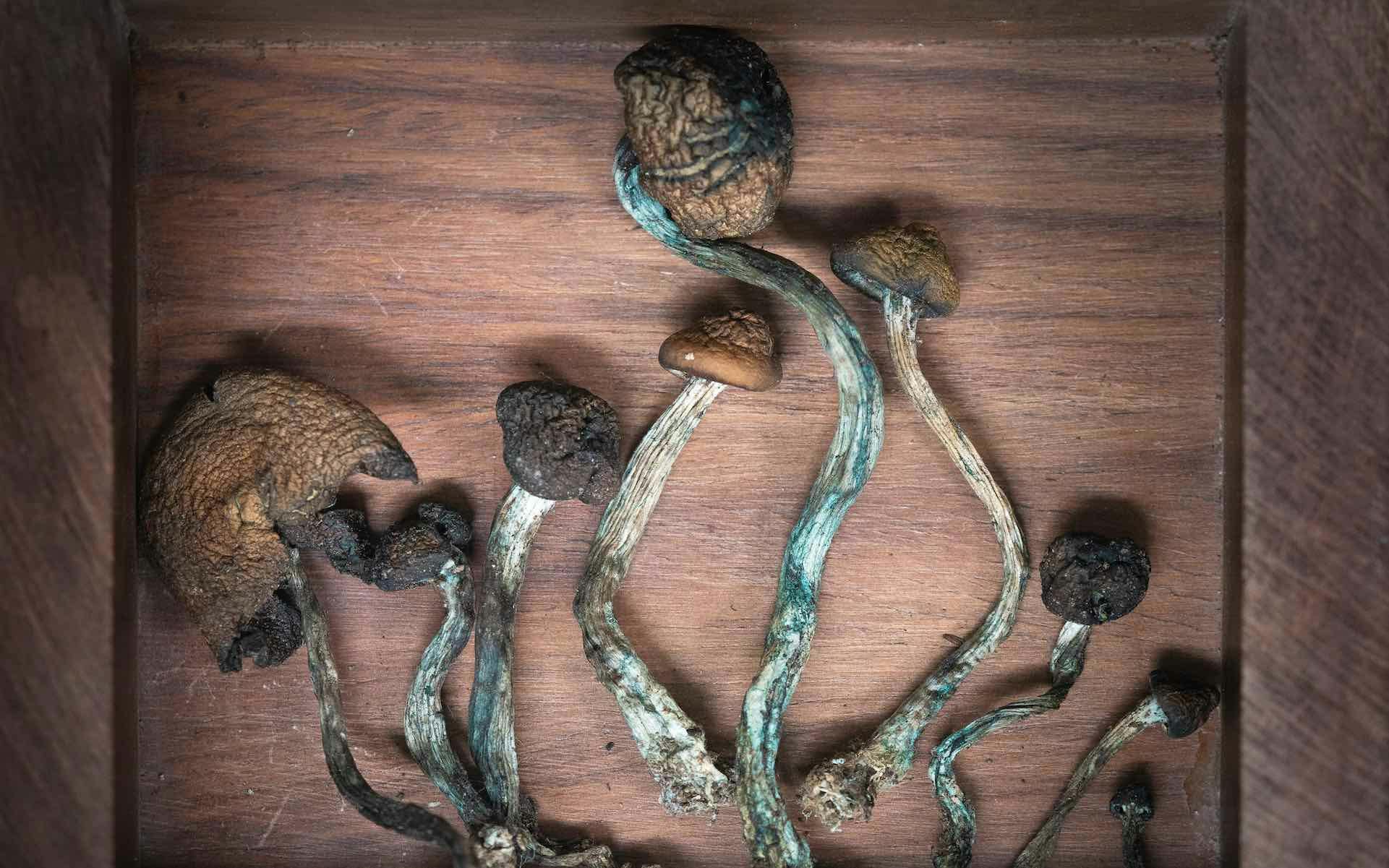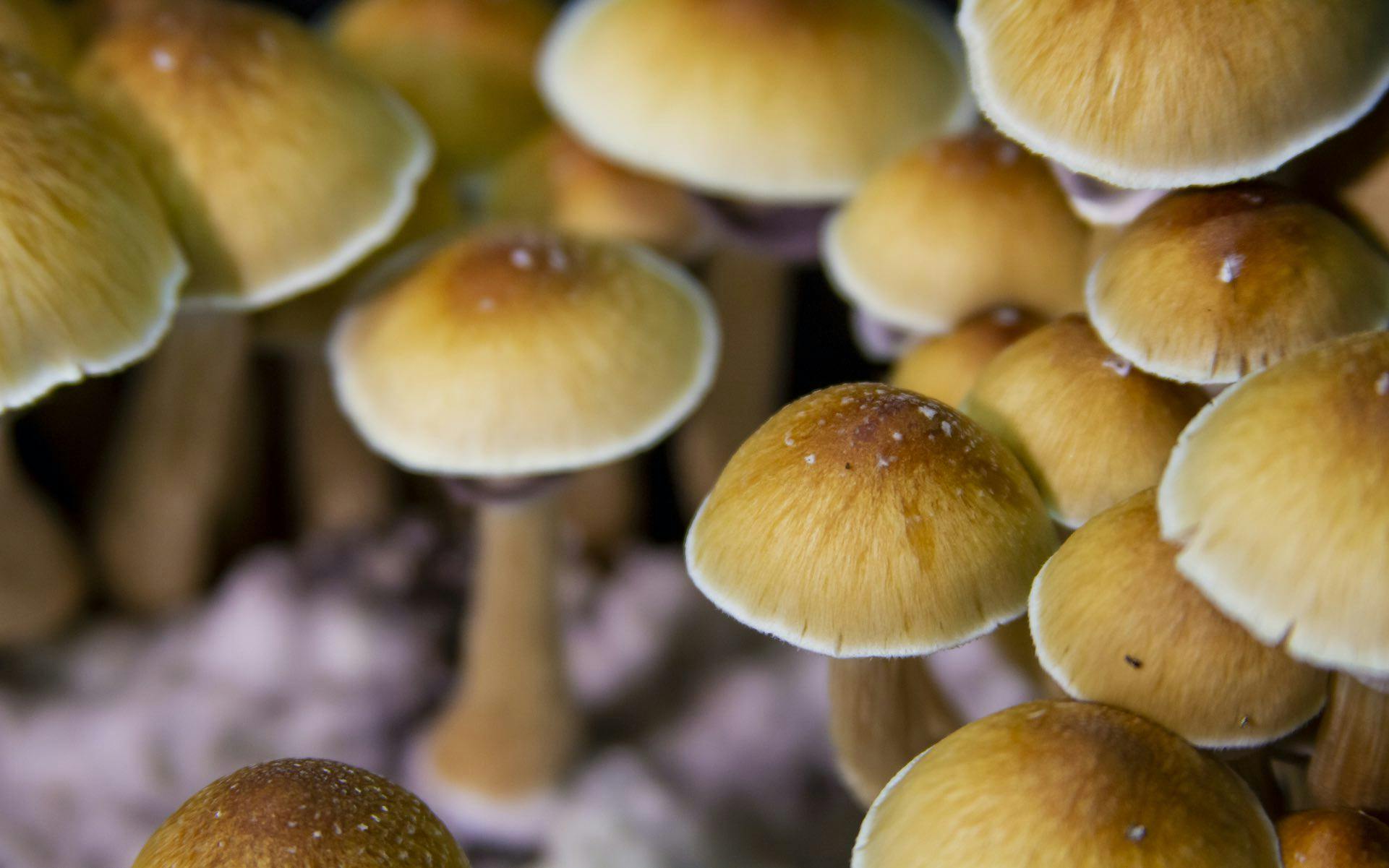It’s not uncommon to find cannabis consumers who also use psychoactive mushrooms, and vice versa. The internet is full of articles about self-administering psilocybin and marijuana together, with anecdotal reports from people who perceive an enhanced effect from the combination.
What does the science say about how these two substances affect the consumer when taken together?
People have combined the two compounds for decades—if not centuries. One 2006 study that looked into polysubstance use among university students found that of the 149 students surveyed, nearly 60% regularly co-administered cannabis and psilocybin (the active ingredient in psychedelic mushrooms).
That co-administration remained mostly limited to the experimentation of younger adults, though, until recently. In the past few years, mainstream interest in psilocybin has exploded, driven by promising research into its therapeutic use.
That growing interest resulted in a historic vote in Oregon and Washington, DC, earlier this month, in which the state and the district both decriminalized the possession and use of psilocybin.
It will soon be legal to use both substances together in those jurisdictions. But is that a good idea? What does the science say about how these two substances affect the consumer when taken together? Here’s what we know.
Combining cannabis and psilocybin: What it’s like
Most of what we know about the pairing comes from anecdotal reports. The experience provoked by ingesting a psychedelic substance—let alone the combination of two different psychedelics like psilocybin and cannabis—is highly subjective. It can be affected by a person’s mindset and their social environment, often referred to as “set and setting.” This makes the effects of these drugs difficult to study in a controlled way.
That said, cannabis can augment the effect of psilocybin, particularly when paired with a heroic dose of psilocybin.
Michelle Janikian, author of Your Psilocybin Mushroom Companion, wrote about “What You Need to Know About Smoking Weed While Tripping” for Double Blind last year. “The main concern,” she wrote, is the consumer’s “mental and spiritual well-being, because cannabis can have an unpredictably strong effect when mixed with psychedelics.”
Intensifying the trip
It’s not uncommon to hear that cannabis intensified someone’s experience with heroic dose of psilocybin—and not necessarily in a good way.
“I personally find mixing cannabis and mushrooms together can be a bit intense for me,” reported Janelle Lassalle, a Leafly contributor who writes about the psychedelic world at her website, The Full Spectrum Revolution. “It depends on how I’ve been feeling, but if I’m not doing well emotionally and I’ve taken mushrooms, they’ll bring those thoughts to the forefront. This kind of volatile emotional state, then, doesn’t always mix well with larger doses of cannabis.”
Hallucinations could persist
A 2019 literature review published in the Journal of Addictive Diseases also mentioned the increased emotional intensity mentioned by Lassalle. Russian researchers noted a clinical presentation of hallucinogen persisting perception disorder (HPPD), a condition characterized by recurrent hallucinations while on and off of substances, in three subjects who paired cannabis with psilocybin with additional substances.
The subjects described the experiences as “stressful and frightening.” That HPPD event was a single clinical presentation, however, and not a common reaction found in a full clinical study—in other words, it’s a tiny sample size and should not be taken as conclusive evidence.
Cannabis with a microdose of psilocybin
Lassalle said she generally finds mushrooms to be more enjoyable on their own, but she and her partner occasionally use cannabis with micro-doses of psilocybin, which she says is much more enjoyable—and popular, according others who partake in this pairing.
“A microdose with cannabis feels like you’re having a wonderful day, plain and simple,” said Lasalle. “I have higher energy levels, but not at a racy level. I’m more alert, focused, creative. I can fall asleep more easily at the end of the night. Colors look a little brighter and everything feels more vivid.”
Is it safe to pair cannabis and psilocybin?
According to a 2017 report by the Global Drug Survey, psilocybin sends the fewest people to the emergency room of any drug on the market. “Perhaps the most dangerous thing about psychedelic mushrooms,” noted Popular Science, “is that they’re easily confused for the poisonous kind.”
Cannabis has a well-known track record with regard to lethality: No one has ever died from a marijuana overdose. It simply doesn’t affect the mind and body in the same way as opioids and other potentially deadly drugs.
Is lack of bad news… good news?
Dr. Evan Wood is a physician and epidemiologist who’s spent most of his career studying substance use clinically. Many patients in his own clinical practice have used psilocybin and cannabis. But there are few published studies on the combined effects of using both compounds together.
“I think the one thing that can be inferred from the lack of studies is probably that [taking the two compounds together is] not remotely toxic, because we know that cannabis isn’t particularly toxic on its own, and neither is psilocybin,” Wood told Leafly.
“If you look at ibogaine for instance, a lot of literature exists that stems from the toxicology literature,” he added. “So that’s just from people doing it in the community and showing up in hospitals and poison control centers, or investigators doing research, studying these effects. So, if there was a toxic, synergistic effect of cannabis and psilocybin, we would know about it.”
Can this pairing have therapeutic benefits?
While many people use psychedelics purely for the experience, some are pairing psilocybin and cannabis for potential health benefits. The reported success of psychedelic-assisted therapies is so compelling that experts project psychedelics will one day pose a threat to the booming market for anti-depressants and other pharmaceutical drugs.
Likewise, cannabis—particularly CBD—has become a popular alternative to traditional pharmaceuticals, especially for pain relief.
A fan of both substances, but not together
Ophelia Chong, a longtime cannabis entrepreneur, said she frequently micro-doses psilocybin for its “world-changing” mental health effects. But Chong keeps the two substances separate. She told Leafly she believes that the introduction of cannabis would likely take away from the benefit of psilocybin.
“It’s like a car and a horse,” Chong said. “Psilocybin and cannabis are two different things. If you’re going to do psilocybin, I would do it first to experience the journey and really answer the questions you want. Then add cannabis later to come down—because cannabis, I believe, mutes a lot of your questions.” Using cannabis on top of psilocybin, she added, “is putting blinders on when you should have them off.”
Using cannabis for a soft landing
Evan Wood confirmed that he’s heard of patients using cannabis on the latter end of a psilocybin trip, to facilitate a soft comedown from the energizing effects of psilocybin. “I think we know from just use in a naturalistic context of psychedelic substances people commonly use cannabis alongside different drugs including psychedelics, and at least anecdotally people will commonly use cannabis to support the come-down or to synergistically augment the experience,” said Wood.
Though some users find the benefits of psilocybin and cannabis are better reaped individually, anecdotal reports from others claim that using the drugs in tandem has been a key to their health and wellness.
“I have never consumed mushrooms without cannabis,” said one consumer who spoke to Leafly but asked to remain anonymous because the legal status of the substances. “I consider mushrooms [to be] cannabis’ older bigger brother, which complete my medicinal needs. Cannabis for physical ailments. Mushrooms for my soul. The combination being the apex of healing.”
Could co-administration improve therapeutic effects?
It’s unclear exactly if or how cannabis and psilocybin can be taken together to augment therapeutic benefits. Nonetheless, Evan Wood is eager to understand this synergy, especially because drug synergies are common and often leveraged to improve a patient’s overall health.
“From my perspective as an internal medicine physician it’s very common for two medications to be included together for synergistic effects,” said Wood. “I see patients all the time who are on a combination ACE inhibitor diuretic pill for their high blood pressure. You don’t want to give too much diuretic or someone’s electrolytes might go out of whack. But we can give some diuretic and we can give some ACE inhibitor and we can get this great synergistic effect on blood pressure.”
“I think we know [taking psilocybin and cannabis together] appears to be safe. I think we know that it’s happening naturalistically in the community and probably has been for centuries. As we go into the modern era, we’d be silly to put blinders on and ignore the fact that these types of things are going to occur—and we should be exploring what it means.”
More research is underway
Wood isn’t alone in this thinking. The University of Miami medical school just received funding from a Toronto-based company, Tassili, to study the effects of combining psilocybin and CBD in treating traumatic brain injuries and PTSD. Researchers wonder if the entourage effect—the synergistic interplay between the many cannabinoids and terpenes found in cannabis—might also happen when CBD is paired with psilocybin.
That University of Miami study will enter a human clinical trial phase in early 2021. If the two compounds are found to work well together, they may offer relief to military veterans who suffer disproportionately from traumatic brain injuries and PTSD.
Dr. Michael Hoffer, the chief scientist leading the study, said: “Our goal is to develop a prescription pill with these ingredients that treat mTBI [mild traumatic brain injury] and PTSD. This is a new and increasingly exciting area.”








